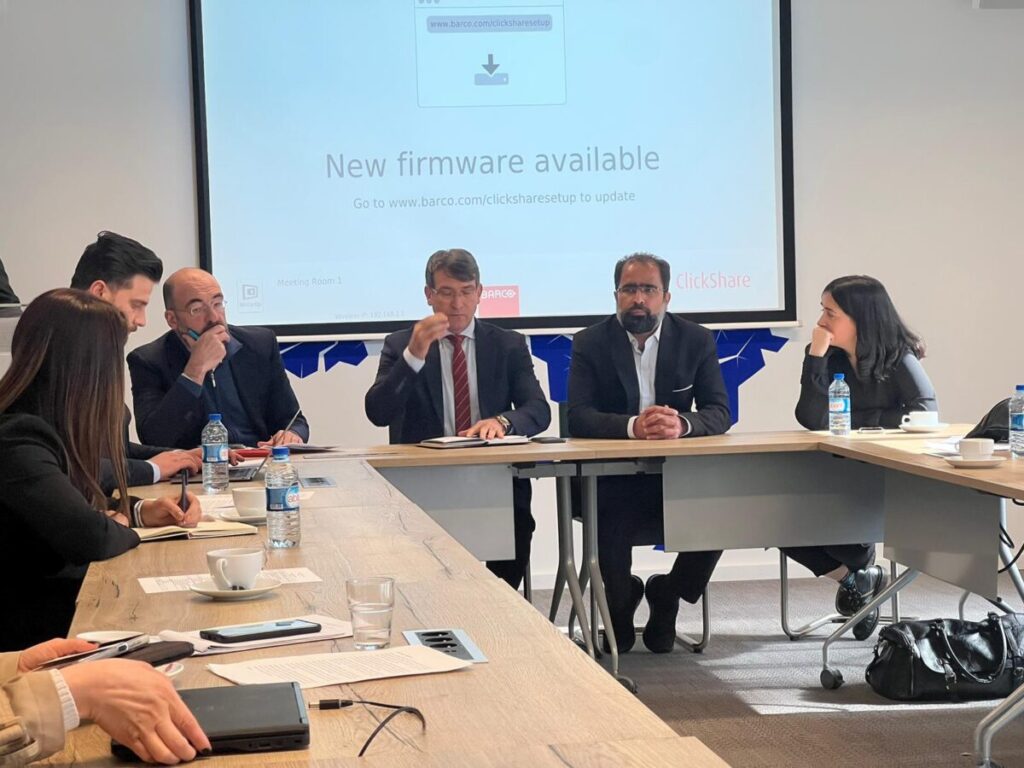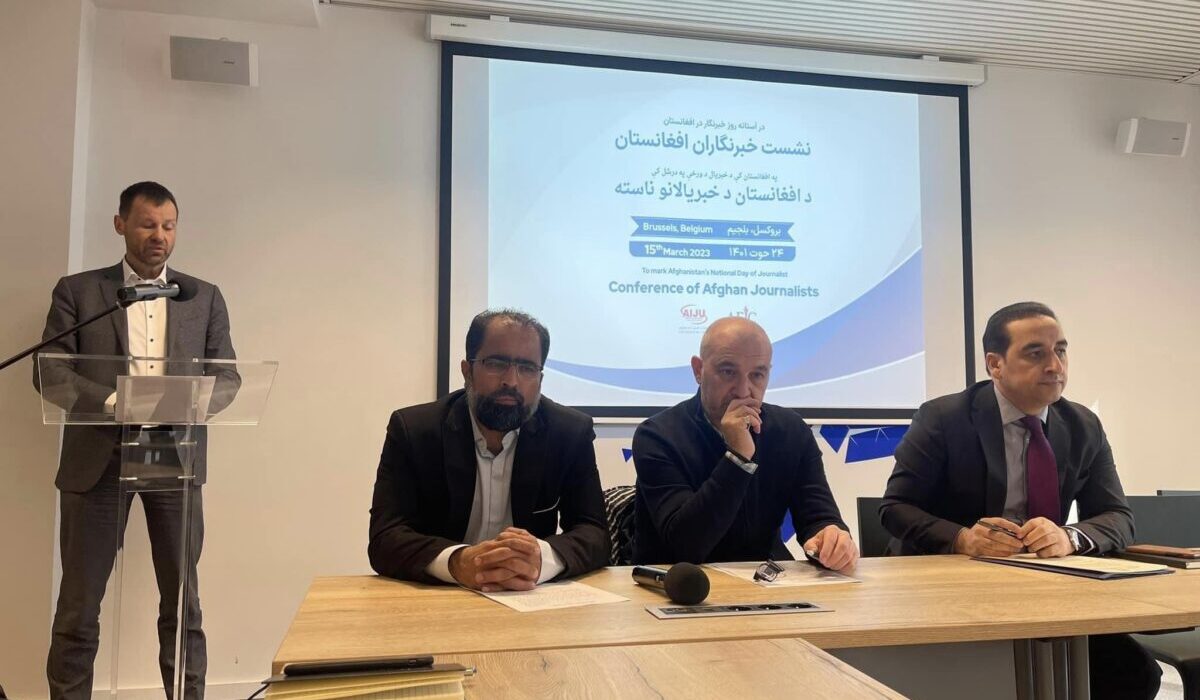EU Special Envoy for Afghanistan Tomas Niklasson said Wednesday the media landscape and press freedoms in the country are deteriorating fast and that over the past 18 months the situation has steadily deteriorated into one of the most restricted media environments in the world.
Addressing the Conference of Afghan Journalists in Brussels on Wednesday, Niklasson said 1,000 journalists and media workers have left the country since the takeover of the Taliban in August 2021 but those who remain “have to adjust to an increasingly uncertain legal framework, while also facing considerable economic challenges.”
About 40 Afghan journalists attended the one-day conference in Brussels, including three who are still based in Afghanistan. The rest live in exile in various countries in Europe and in the United States.
The conference centered around discussions of the plight of journalists and media outlets in the country; media freedom; freedom of expression; and the situation of journalists in exile. In addition to this, discussions were conducted on problems faced on the ground in the country by journalists.
Various journalist associations in Kabul and abroad organized the conference, which was facilitated by the Belgian Foreign Ministry. Key speakers included Niklasson and representatives of the Institute of Foreign Journalists (IFJ) and Reporters Without Borders (RSF).
A welcome gathering
The conference was welcomed by the journalists who highlighted that it was the first time an event of this nature had taken place since the Taliban takeover.

One journalist who attended and who is now living in exile, Siyar Sirat, said: “It was the first initiative of such a nature by Afghan journalists to meet, 18 months after the political developments in Afghanistan. The idea was to discuss fundamental issues, search for long-term solutions, and put forward a unified approach to bridging the gap between journalists in Afghanistan, Afghan journalists in the region and those in Europe and the US.”
He said discussions had been productive and everyone “was on the same page when it came to defending the rights of journalists given the current circumstances in Afghanistan.”
EU envoy hails Afghan journalists
Niklasson meanwhile hailed Afghan journalists and said in his speech they are defending the fundamental principles of a free and democratic society. “You represent the legacy of democratic Afghanistan,” he said.
He also stated that Afghan journalists are “grains of hope for a better future, when Afghans can live in peace, have their rights respected, and have a say about the future of their country, your country.”
The role Afghan journalists play is extremely important, he said, noting that it was critical for the people of Afghanistan, inside the country, and the Taliban, to have access to accurate and reliable information. “You play a role in keeping Afghans inside the country and Afghans abroad – not united, as this is overly ambitious, but connected. And you have an important role to play also in helping the rest of the world, those of us who care and others who should, to keep abreast of developments inside the country.”
He said it was also important that Afghan journalists covered stories on the situation so as to remind the international community that “Afghanistan is still there and that it matters, at a time when so many Embassies have closed and there are fewer foreign correspondents and international journalists present.”
He acknowledged the strict clampdown on freedom of expression and access to information; noted that the Taliban want to review content that is broadcast or published; and that journalists operate in an increasingly uncertain environment which has led to widespread self-censorship.
Niklasson also pointed out that many Afghan journalists live in fear of severe restrictions, including surveillance, intimidation, violence, arrest and detention. This he said was especially true for women journalists in the country.
However, in the last 18 months, “there has also been a systematic attempt to diminish the role and visibility of women in the media sector, which is in line with other edicts by the Taliban that restrict women’s right to education, employment and freedom of movement and drastically limiting spaces available to Afghan women outside their home,” he said.
According to him, women journalists spoke to him during his recent visit to the country and gave him examples of their working environment. They told him they “are not invited to press conferences, not allowed to cover public gatherings and denied interviews by representatives of the de facto authorities.”
He said he was humbled by the commitment, strength and determination of Afghan women to stand up not only for their rights but also for the rights of all Afghans but said he was also left with a question – “Where are the Afghan men? As with some notable exceptions it seems so much of the struggle for dignity, rights and a better future seems to fall on the shoulders of Afghan women. They can carry a lot. But they need to be supported,” he said.
He told the conference participants, which included Afghan women journalists, that the EU is ready to support them but that they must not forget their sisters.
Shrinking playing field
Reporters Without Borders has reported that there is not a single female journalist in more than half of Afghanistan’s 34 provinces and that 82 percent of all female journalists have lost their jobs.
In the last 18 months, the sector has noticeably shrunk and about 40 percent of media outlets have ceased to operate and 60 percent of journalists have lost their jobs since August 2021.The latest report by the Special Rapporteur on the situation of human rights in Afghanistan, Richard Bennett meanwhile stated there had been 245 cases of documented violations against media freedom, including 130 cases of detention, physical violence, ill-treatment and torture last year.





